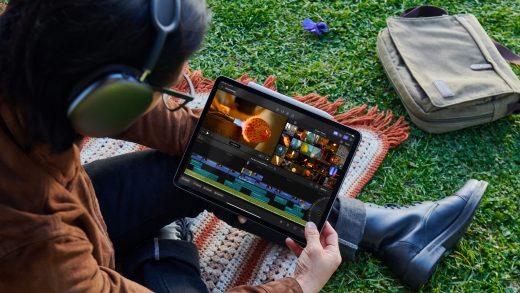A research study by The National Center for Women & Information Technology showed that “gender diversity has specific benefits in technology settings,” which could explain why tech companies have started to invest in initiatives that aim to boost the number of female applicants, recruit them in a more effective way, retain them for longer, and give them the opportunity to advance. But is it enough?
Four years ago, we launched a diversity series aimed at bringing the most inspirational and powerful women in the tech scene to your attention. Today, we’d like you to meet Alexandra Matthiesen, Vice President of Marketing, CodeSee.
Today’s Woman in Tech: Alexandra Matthiesen, Vice President of Marketing, CodeSee
 Alexandra Matthiesen is vice president of marketing at CodeSee. Matthiesen has 15 years of experience developing compelling brands and marketing the results. Her career has centered on technology and she has had the opportunity to do work for Intellectual Ventures, Microsoft, and Veritas Technologies, among others.
Alexandra Matthiesen is vice president of marketing at CodeSee. Matthiesen has 15 years of experience developing compelling brands and marketing the results. Her career has centered on technology and she has had the opportunity to do work for Intellectual Ventures, Microsoft, and Veritas Technologies, among others.
When did you become interested in technology? What first got you interested in tech?
I was not someone who entered my academic career believing I would focus professionally in tech. I came from a background where technology and science were simply not something women did. But in my first year of college, I found a group of friends who were personally and professionally invested in technology, and began exploring the potential in hardware and software. It sparked an insatiable curiosity in me.
From there, I knew I wanted to spend my career making technology accessible to people. The best way I can do that is helping take products to market in different ways—ways that move beyond traditional tech-focused audiences and instead inspire everyone to question how technology applies to their lives.
Let’s talk about your background. How did you end up in your career path?
I was one of the first women in my family to graduate from university. That alone felt like an incredible accomplishment at the time. Now, I look back and realize the biggest accomplishment was my ability to focus my path in technology marketing; to hone my capacity to work with language to convey the value of tech.
I was fortunate to land an internship with a company called Haute Secure. It was an incredibly cool security offering. The software was designed to detect malicious URLs and prevent users from navigating to them in real time, without requiring a logged roster of previously-identified malicious URLs. Writing technical marketing copy for Haute Secure and interacting with the engineering team taught me how invaluable that relationship could be.
I knew from that point on that technology marketing is what I wanted to do. I started a brand consultancy and took on contracts for small local organizations—gaining a sense of familiarity in the space. This led to a role at Waggener Edstrom Worldwide, working on behalf of Microsoft. I was writing marketing content focused on Microsoft’s competitive landscape. It was satisfying, and I knew I wanted more.
Did you receive support from your family and friends? Do you have a role model?
My family still does not fully understand what I do professionally, though there are elements of pride in them when I talk about my work. I don’t think there’s a deep understanding, or desire for as much. This brings us back to what motivated me to get into technology, really. The value in figuring out how to make technology more accessible to more people.
My family is made up of a lot of people who might say, “Technology is not for me,” yet they’re holding a smartphone in their hand—routinely interacting with a highly powerful microcomputer. This drives me. I want to change this response, and technological understanding, broadly.
I have many role models, though one that immediately comes to mind is author and researcher, Angela Duckworth. She’s been a true inspiration—able to build this amazing, amazingly impactful body of work and share it with the world. She’s now the founder and CEO of Character Lab, a nonprofit with the mission to advance scientific insights to help children thrive. The programs she’s developing are directly helping young people boost their resilience and sense of purpose. She’s a phenom, full stop.
Did anyone ever try to stop you from learning and advancing in your professional life?
No one person has directly attempted to put a pause on my career, and anyone who knows me well knows that would be a dangerous thing to do. I love my work, and I’ve had a vision for what I want to accomplish professionally from a very young age. This said, it’s important to point out that women are not positioned to see technology as something that’s an ideal area of focus for them. Not as often as their male counterparts. Even today.
There has been a lot of progress for women, but there is still much ground that must be gained to reach equality. We should be inspiring more people, specifically minorities and women, to explore and understand how technology could be advantageous to them personally and professionally. Let’s be frank—tech-focused roles will continue to be some of the most highly paid; I’d love to see a broader range of people and personalities stepping into them, confident and supported.
But the fact that my son saw the value in my professional success—that he realized my career is a core driver for me, his mother—this still inspires me years later.
A day in Alexandra’s life
I am currently the Vice President of Marketing at CodeSee, and we take to market an incredible product, Maps. Maps are automatically generated code diagrams that allow developers—individual devs and teams—to easily visualize codebases. The platform is truly unique, because until now most devs have had to learn new code by reading it line by line. Even if they’re stepping into a section of the codebase, they’re reading files to create a mental model. This approach isn’t readily replicable, and it doesn’t scale. And when that engineer exits the team or company, all of that mental modeling, their knowledge exits with them. It’s problematic, even with strong documentation practices.
One of the coolest things about Maps is its ability to create a collaborative visual environment for developers to navigate and understand code together. It saves a lot of energy, a lot of time, and I believe it’s going to change the way people work together in code.
What are you most proud of in your career?
I have a story to respond to this question. When my son was in fourth grade, he was asked to write about something that made him feel grateful. This was for a paper-craft project. He wrote one sentence for me, and another for his father.
About his father, he wrote, “My dad is really tall.” And he is. His dad is 6’7″. For me, he wrote, “My mom owns her own cupany.” What’s kind of amazing about this, aside from the comedy and sweetness in it, is that father is doing amazing things. He’s an incredibly accomplished technologist at Microsoft—an awesome career, end to end. But the fact that my son saw the value in my professional success—that he realized my career is a core driver for me, his mother—this still inspires me years later.
Why aren’t there more women in tech? What’s your take on that?
That’s a complex question. An answer that will do it justice requires awareness of a lot of variables. At a high level, I believe we don’t see enough women going into STEM fields because STEM is not presented as an advantageous, natural valuable avenue for them; they’re not being prompted to take this pathway.
Could you name a few challenges (or obstacles) women in tech face?
A decade ago, I think many of us had hoped we’d be living in a different world, today. One in which women play a stronger part in the tech sector. And unfortunately, I suspect many women don’t yet feel welcome. While there’s a lot of language out there regarding equality, I think a lot of it is just that—it’s language; words are not actions. Words are only a start. Many women are going to need to feel they have a seat at the figurative table before they invest their academic and professional selves in tech.
Women must play a part in seeing new technologies come to life and ensuring their continued evolution.
How would our world be different if more women worked in STEM? What would be the (social, economic, and cultural) impact?
I love that question. The impact would be incredible. Everyone has a right to a voice in our shared technological future; we are all using technology. Today, many of us carry microcomputers in our backpacks, pockets, and purses. Technology is a part of our every day, and that’s going to be more and more evident as connectivity, hardware, and software continues becoming more and more accessible. We need more women building the solutions that are delivered in the market—that are shared across those tech mediums. Women must play a part in seeing new technologies come to life and ensuring their continued evolution.
If something is truly a solution—capable of effectively solving peoples’ needs—its inception ought to encompass the perspectives of varied individuals; a solution designed by a single audience is unlikely to meet the needs of many. Right now, most technologies reflect a fraction of the global perspective. The more women who take on STEM fields, the more likely our technology solutions will represent the hearts and minds of women. This alone will make an impact; more girls in K-12 environments will be able to see themselves in tech and see their potential to create what’s next.
What advice (and tips) would you give to women who want a tech career? What should they know about this industry?
You will face a lot of barriers. Know they are coming. Ground yourself in your vision for what’s possible for you and others like you. I recommend every single woman who’s stepping into STEM take a moment to repose before industry and workplace conversations; take a moment to find your peace before every project planning session, every onboarding, and every presentation of the results.
You’re going to kill it. So, allow yourself that moment to remember why you’re here—why your success matters. You’re not just here for yourself, you’re here to empower the women who follow you. Every single win is a win for all of us.
More Women in Tech:
- Women in Tech: Elise Morse, Vibration Analyst at Augury
- Women in Tech: Hamida Rebaï Trabelsi, Senior Cloud Application Architect at Revenu Quebec
- Women in Tech: Rafaela Ferro, frontend engineer at SingleStore
- Women in Tech: Marta Vasconcelos, software engineer at SingleStore
- Women in Tech: June Sugiyama, Director of Vodafone Americas Foundation
For even more Women in Tech, click here
The post Women in Tech: “Every single win is a win for all of us.” appeared first on JAXenter.
Source : JAXenter












